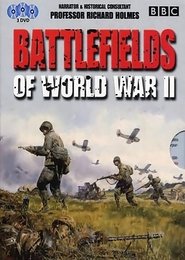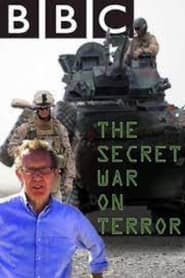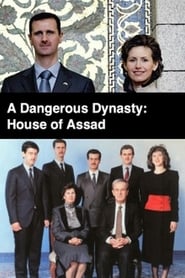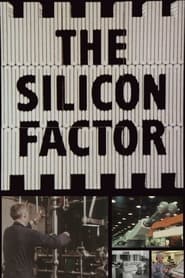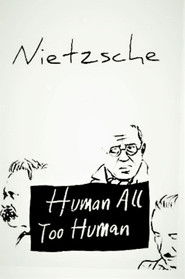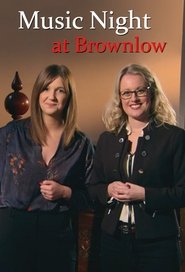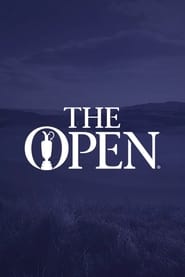Bbc Two TV Series - Page 85
-
Battlefields
2001
star 7British military historian Professor Richard Holmes takes the viewer through four major battles of world war two. The Battles of Cassino, El Alamein, Arnhem (Operation Market Garden), & the RAF Bomber Command. An insightful overview of each of these diverse campaigns is given in each of the four episodes. -
Can't Take it with You
2011
Sir Gerry Robinson helps two families torn over what to write in their wills. -
The Secret War on Terror
2011
star 10The inside story of the intelligence war which has been fought against Al Qaeda since 9/11. -
A Dangerous Dynasty: House of Assad
2018
The inside story of a family dynasty at the heart of one of the world's biggest problems. -
The Silicon Factor
1980
The Silicon Factor
1980
A series of three programmes investigating the so-called microelectronics revolution. -
Peataí!
2021
-
Jazz 625
0000
Jazz 625
0000
Jazz 625 is a BBC jazz music programme, featuring concerts by British and American jazz musicians, which was first broadcast between April 1964 and August 1966. The programe was created by Terry Henebery, a clarinetist by training, who was recruited back to television in 1963 as one of the new producer intake for the opening of BBC2. -
I Love the '80s
0000
I Love the '80s
0000
I Love the '80s is a BBC television mini-series that examines the pop culture of the 1980s. It was commissioned following the success of I Love the '70s and is part of the I Love... series. I Love 1980 premiered on BBC Two on 13 January 2001 and the last, I Love 1989, on 24 March 2001. Unlike with I Love the '70s, episodes were increased to 90 minutes long. The series was followed later in 2001 by I Love the '90s. The success of the series led to VH1 remaking the show for the US market: I Love the '80s USA. -
War Walks
1996
War Walks
1996
War Walks was a BBC documentary series presented by historian, Professor Richard Holmes. The series was about several famous European battles. It included descriptions of the battles, the events leading up to them and the events resulting from them. -
Cathedral
2005
Cathedral
2005
Cathedral is an educational television miniseries of five episodes first broadcast in 2005 by the BBC. It describes the construction of five cathedrals in the United Kingdom: ⁕Canterbury Cathedral ⁕Lincoln Cathedral ⁕Winchester Cathedral ⁕St. Giles' Cathedral ⁕York Minster The show features historical re-enactments using actors and CGI. -
Human, All Too Human
1999
Human, All Too Human
1999
Human, All Too Human is a three-part 1999 documentary television series co-produced by the BBC and RM Arts. It follows the lives of three prominent European philosophers: Friedrich Nietzsche, Martin Heidegger and Jean-Paul Sartre. The theme revolves heavily around the school of philosophical thought known as Existentialism, although the term had not been coined at the time of Nietzsche's writing and Heidegger declaimed the label. The documentary is named after the 1878 book written by Nietzsche, titled Human, All Too Human: A Book for Free Spirits. -
Music Night at Brownlow
2017
star 5Series that captures the variety and scope of the music that is Ulster-Scots. -
Congo
2001
Congo
2001
Congo is a 2001 BBC nature documentary series for television on the natural history of the Congo River of Central Africa. In three episodes, the series explores the variety of animals and habitats that are to be found along the river’s 4,700 km reach. Congo was produced for the BBC Natural History Unit and the Discovery Channel by Scorer Associates. The series writer/producer was Brian Leith and the executive producer was Neil Nightingale. Series consultants were Michael Fay, Kate Abernethy, Jonathan Kingdon and Lee White. Little filming was possible in the Democratic Republic of the Congo which encompasses the vast majority of the river's watershed. The reason for this is that the Second Congo War was underway during filming. The series forms part of the Natural History Unit's Continents strand and was preceded by Andes to Amazon in 2000 and Wild Africa later that year in 2001. -
Great Composers
1997
Great Composers
1997
An anthology series with each episode focused on the life of a renowned composer. -
Carols from King's
1954
Carols from King's
1954
A solo chorister sings Once in Royal David's City to begin the traditional celebration of Christmas from the candlelit chapel of King's College, Cambridge. The world-famous choir sings carols old and new. Filmed amidst the beauty of historic King's College Chapel and first televised in 1954, and annually since 1963. -
World's Busiest Cities
2017
star 7.7Dan Snow, Anita Rani and Ade Adepitan reveal the hidden systems and armies of people running some of the greatest cities on earth. -
Golf: The Open
0000
Golf: The Open
0000
Daily highlights of The Open Championship, the oldest of the four Major Championships in professional golf. -
Tribe with Bruce Parry
2025
In the furthest corners of the planet, indigenous groups lead radically different lives. Bruce Parry visits three tribal communities who have never had outsiders to stay before. -
Man Alive
0000
star 7Man Alive was a documentary and current affairs series which ran on BBC2 between 1965 and 1981. During that time there were nearly 500 programmes tackling a range of social and political issues, both in the UK and abroad. It was often accused of trying to sensationalise its subjects or interviewees. The series was commissioned by Sir David Attenborough, while he was Controller of BBC2 between 1965 and 1969. British television journalist and presenter Esther Rantzen worked on Man Alive in the mid-1960s. She went on to marry one of the programme's most prominent reporters, and series editor Desmond Wilcox. Wilcox contributed directly to about 50 Man Alive programmes. The Man Alive theme music was composed and played by Tony Hatch and his orchestra.
